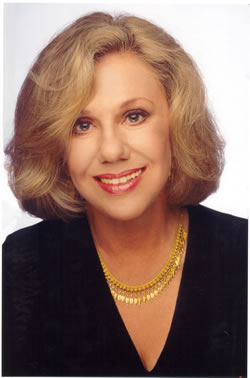Erica Jong Gives Back
By Jacob M. Appel
 In Erica Jong’s best-selling 1973 novel, Fear of Flying, narrator Isadora Wing reflects, “No writer can tell the truth about life, namely that it is more interesting than any book.” Maybe that prophesy is self-fulfilling, because over a four-decade literary career as a poet, novelist, memoirist and patron of younger writers, Jong has led a life far larger than much fiction. At seventy-two, with four marriages and twenty-five major publications under her belt, Jong remains passionate about writing—with a new novel, Fear of Dying, due out in 2015.
In Erica Jong’s best-selling 1973 novel, Fear of Flying, narrator Isadora Wing reflects, “No writer can tell the truth about life, namely that it is more interesting than any book.” Maybe that prophesy is self-fulfilling, because over a four-decade literary career as a poet, novelist, memoirist and patron of younger writers, Jong has led a life far larger than much fiction. At seventy-two, with four marriages and twenty-five major publications under her belt, Jong remains passionate about writing—with a new novel, Fear of Dying, due out in 2015.
Fear of Dying, although fiction, reflects the insights that Jong has acquired during her maturation from feminist icon to doyenne of letters. “As you get older, you see your life differently. After your parents die, you see it differently.” She describes the forthcoming novel as “a book about what matters….What matters is loving and being loved.” The key to long term happiness, she adds, is having a partner “who understands you better than you understand yourself.” As with many of her earlier books, Dying is about “humor and sadness—that’s my thing.” She later comments, “My humor is the humor of the gallows…of the pogrom.” It is worth noting that she is an expert on satire, having writing a master’s thesis on Alexander Pope.
Like many of her heroines, Jong did not end up leading the life she initially anticipated. As a young woman, her ambitions had been in the visual arts. Her maternal grandfather, Samuel Mirsky, was one of the leading portrait painters of his generation; her own mother “could draw and paint anything.” From the age of ten, Jong visited the Art Students League regularly to hone her talents. Her other goal was a career in medicine. “I was going to paint and be a doctor,” she explains. Her medical aspirations ended abruptly during her first year at Barnard College—itself ironically her “third choice” after Radcliffe and Bryn Mawr, especially as she has since dedicated much of her adult life toward benefitting the institution. “I got into Bryn Mawr, but there were no men there,” she reports candidly, so she decided not to go. “I planned to be premed at Barnard,” she recalls. She changed her mind quickly after she signed up a mandatory zoology course and encountered a fetal pig in need of dissection. Her initial reaction: “It looked like a baby.”
A stroke of good luck led her to advisor Robert “Bob” Pack, later a major American poet in his own right, who heard her tale of the fetal pig and responded, “Forget it. You’re a writer.” Pack fiercely encouraged Jong’s craft, telling her, “I predict you’ll become the most celebrated writer of your generation.” (Pack is now eighty-five years old and Jong still corresponds with him.) His encouragement helped Jong overcome her fears of failure. Jong initially turned to poetry, publishing two collections (Fruits & Vegetables, 1971; Half-Lives, 1973) and studied at Columbia with luminaries Stanley Kunitz and Mark Strand. “I was considered a really good young poet,” says Jong. “I read at the [92nd Street] Y….I won the same award as Sylvia Plath and W. S. Merwin….Then I published Fear of Flying and the poets deserted me.” While “disowned” by the poetic establishment, Jong proved one of the best-selling authors of the decade.
One of Jong’s goals is to create opportunities for young women in writing. In partnership with then Barnard President Judith Shapiro, Jong established the Erica Mann Jong ‘63 Writing Center which provides free writing assistance to all Barnard students in need. Jong funded the initial fellowships that pay scholarships and stipends for peer writing tutors; other alumna, including Anna Quindlen, have since contributed substantially as well. “There are a lot of smart people who are afraid to write,” Jong laments. “Let’s say you want to write a paper and you’re scared. The peer tutor stays with you until both of you are satisfied. Two drafts. Ten drafts….It gives you a friend, an editor, to go through the process with you.” As for having a major literary program named after her, Jong replies, “I don’t care about the name, but I do care about Barnard.” She praises the fellows as “the smartest young woman you’ll ever meet in your life” and notes that the fellows program has “become a signature program of the college.”
So what does Jong recommend to aspiring writers who wish to follow in her footsteps: “Read, read, read. Read what you like and what you don’t like.” In her own training, Jong says she “spent a whole year” studying the poetry of Denise Levertov. “I was trying to figure out why she broke the lines where she broke the lines.”
Erica feels that the generativity that comes with age is a great blessing. #
Dr. Jacob Appel, a physician and attorney, has won awards for his novels and short stories.
